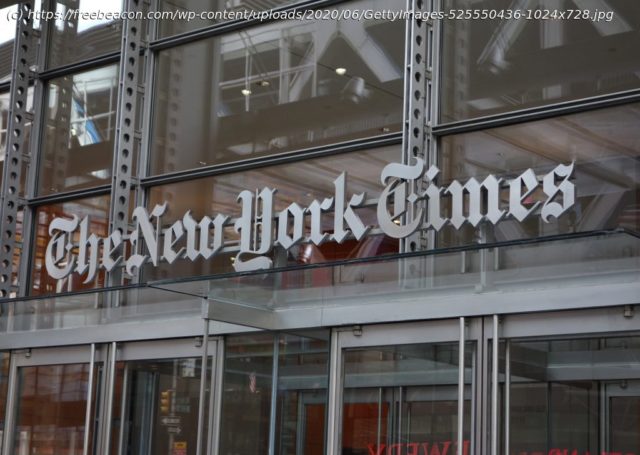It’s been more than two days now since the New York Times opinion page, policed closely by the paper’s readers and employees for …
It’s been more than two days now since the New York Times opinion page, policed closely by the paper’s readers and employees for evidence of bigotry, published an op-ed that approvingly cites the black anti-Semitism explained away in a 50-year-old essay by the writer James Baldwin.
We’ve been waiting for the reference to spark some sort of backlash and outcry from the paper’s reporters, for the Twitter hashtag decrying the insensitivity, for the internal finger pointing about who dropped the ball and allowed the publication of a piece that could make American Jews feel so unsafe.
Are you surprised to hear it never came?
The piece, by Brooklyn College professor Moustafa Bayoumi, asked why a Minnesota convenience store called the police on George Floyd. Midway through, Bayoumi casually invoked the historical tensions between blacks and Jews.
„In Harlem in the 1960s, most such stores were Jewish-owned,“ Bayoumi writes, offering as evidence James Baldwin’s 1967 essay, also published in the Times, titled „Negroes Are Anti-Semitic Because They’re Anti-White.“ In that essay, Baldwin writes, „It is bitter to watch the Jewish storekeeper locking up his store for the night, and going home.“
„Today, many of these stores in major cities around the country are run by Arab-American and South-Asian-American merchants,“ Bayoumi writes, „but the justifiable resentments remain the same.






